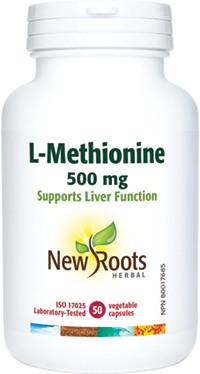-
Products
CategoryGender / Life StageHealth BenefitsRecommendedNew Products Amino Acids / Proteins Antioxidants Enzymes Essential Fatty Acids Exotic Skin Oils Functional Foods Glandular Extracts Herbs and Herbal Extracts Keto Diet Medicinal Mushrooms Probiotics Vitamins / Minerals50+ Health Children’s Health Gastrointestinal Conditions Maternity Men’s Health Women’s Fertility Women’s HealthBlood Glucose Management Cardiovascular Health Cholesterol Management Detoxification Digestive Health Energy Eye Health Hair / Skin / Nails Headache / Migraine Heart Function Immune Health Memory Help Metabolic Detoxification Mood Enhancement Muscle / Bone / Joint Health Neurological / Memory Health Neurological Health Oncology Adjuvant Therapy Pain and Inflammation Parasitic and Fungal Management Sleep Aid Sport Nutrition Stress / Mood / Sleep Stress Management Weight ManagementCough and Cold Don’t Let Pain Stop You! Let us solve the O‑MEGA problem! Essential Oils Cardiac Health Choosing Your Probiotics Boost Your Immunity Vitamin D Studies How Healthy is Your Prostate? How Is Stress Affecting You? Magnesium—A National Deficiency Choose to Care - Vitamin D to Ukraine Exotic Oils for Exquisite Skin Medicinal Mushrooms
- About Us
- Flourish
-
Stores
L-Methionine
Code 0148
UPC: 6-28747-10148-6
NPN: 80017685
Format: Vegetable Capsules
Supports Liver Function
Description
ʟ-Methionine is one of the essential sulphur amino acids. It is called a “methyl donor.”
ʟ-Methionine is one of the essential sulphur amino acids. Called a “methyl donor,” ʟ-methionine contributes to the formation of numerous important compounds in your body; this process is called “methylation.”
The body cannot produce ʟ-methionine; it must be obtained from food or supplement sources. Methionine functions as a sulphur donor to aid in your body’s detoxification processes and can convert to other sulphur amino acids. ʟ-Methionine is also a transporter of the antioxidant mineral selenium.
In addition to its role as a precursor in protein synthesis, ʟ-methionine participates in a wide range of biochemical reactions, including the production of S-adenosylmethionine (SAMe), ʟ-cysteine, glutathione, taurine, and sulfates. SAMe itself, as a methyl donor, is involved in the synthesis of creatine, epinephrine, melatonin, and the polyamines spermine and spermidine, among several other substances.
ʟ-Methionine is classified as an essential amino acid for humans, and therefore must be supplied in the diet. According to the Food and Agriculture Organisation of the United Nations (FAO) and World Health Organisation (WHO), recommended daily ʟ-methionine intake is 13 mg/kgbw, or about 1 g daily for adults. This is principally derived from dietary proteins; rich sources of ʟ-methionine include cheeses, eggs, fish, meat, and poultry. ʟ-Methionine is also found in fruits and vegetables, but not as abundantly. Small amounts of free ʟ-methionine occur in vegetables, vegetable juices, and fermented foods. Sunflower seeds are an excellent source of methionine, while soy is very deficient. Diets deficient in ʟ-methionine may result in destructive breakdown and metabolism of protein. ʟ-Methionine is also a glycogenic amino acid and may participate in the formation of ᴅ-glucose and glycogen.
Directions of Use
Adults: As a dietary supplement, take 1 capsule once or twice daily with food or as directed by your health-care practitioner.
Ingredients
| Each vegetable capsule contains: | |
| ʟ-Methionine | 500 mg |
| Other ingredients: Vegetable magnesium stearate in a non-GMO vegetable capsule composed of vegetable carbohydrate gum and purified water. | |
Warnings
Contains no: Gluten, soy, wheat, eggs, dairy, yeast, citrus, preservatives, artificial flavour or colour, starch, or sugar.
Disclaimer
| Code | Format | Size |
|---|---|---|
| 0148 | Vegetable Capsules | 50 capsules |

